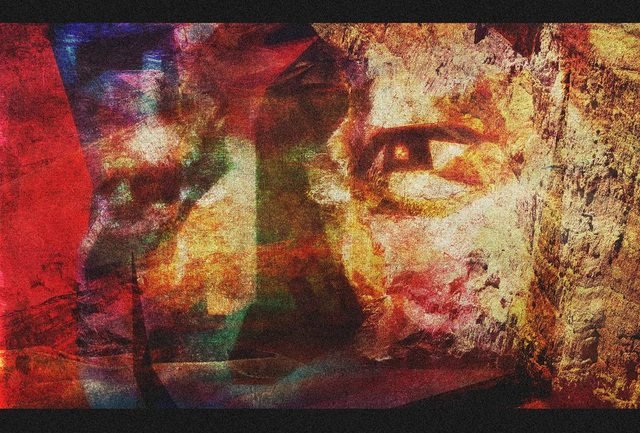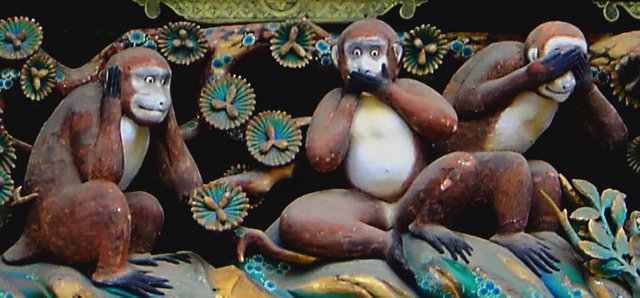What's Your Hidden Curriculum?

Several years ago, one of my students approached me asking for a letter of recommendation to add to his college application. As a high school teacher this wasn't an unusual request of me; what was unusual was the student who asked. I'll call him Thomas.
Thomas sat in the back of my classroom, usually leaning back in his chair, arms crossed. Sometimes, as I walked the classroom while students worked, I would catch him with his arms outstretched on the desk, head down, eyes closed. I'm not a big fan of public shaming to motivate students, so I'd discreetly tap on his desk to wake him. He wasn't an obstinate student, so he would just pick up his pencil and get back to work.
While Thomas was usually rather passive in class, it was during our class discussions that he came to life. Thomas loved to disagree. Whether with me or another student, Thomas would find a contrarian position and hold fast to it. While he was never disrespectful, he annoyed a lot of other students in class - especially those students that knew the "right" answers. I spent quite a bit of time soothing his frustrated peers and using Thomas' comments to facilitate further discussion, opening up new avenues of thought. You see, despite Thomas' unending supply of disagreements, he always had good points. His comments were reasonable and well-thought-out, even if they were opposed to public opinion. Every once in a while, I'd give him a pat on the back or shake his hand on his way out of class and thank him for his participation.
The school year marched on, as they always do, and Thomas continued through the year being, well... Thomas. Of course, his final term paper was as controversial and well-defended as usual. There was something about Thomas I really liked, and when the year came to a close, I knew that I would miss him the following year.
It was the next fall that Thomas approached me in the halls one morning and told me that he was applying to Harvard and wanted a recommendation from me. The request came out of nowhere, and I was both surprised and flattered. While happy to write him a recommendation, I wondered why he chose me, out of all his teachers.

Looking Below the Surface
There's a phrase used in education that represents what's happening here: a "hidden curriculum." In general, you can define a curriculum as the decisions and tools that provide direction for a course of study: including textbooks, technology, standards and goals, assessments, and general expectations for how a classroom operates.
Curriculum is a part of the design for a class. All of the above examples are carefully chosen or crafted to maximize learning for all students. Decisions are made on books and resources, governing bodies decide what standards students should achieve, and teachers create syllabi and rules for a classroom setting so all are aware of the expectations. These things are done purposefully, with the intention of benefiting the overall learning environment.
A hidden curriculum, by contrast, are patterns of practice that are unintentional yet still have an affect on the class and the learning process. It is related to the atmosphere and climate, something that is caught by by students, more than taught.
Because these hidden practices are unintentional and unassessed, they are often more likely to have a negative effect on a classroom.
As an example, Fairfax County, Virginia made national news when a research team found evidence of racial discrimination when hiring teachers. The study found that black applicants were much less likely to be hired for teaching positions, while those same applicants were more educated and had more experience, on average. ("Study of Fairfax County schools finds discrimination against black teacher applicants" - Washington Post). Imagine what these schools are like in the classrooms, when discrimination is apparent even at the level of staffing!
While it is extremely unlikely that hiring boards were consciously deciding to not hire applicants because of their race, unassessed prejudices have a decided effect on people's decisions. The study mentioned above seems to indicate that those hiring decisions are now uncovering a "hidden curriculum" of discrimination.
However, sometimes a hidden curriculum brings unexpected benefit to the classroom. My story above is a case in point. As I spent time evaluating why Thomas came to me for a recommendation, I realized that he felt safe with me; he trusted me. I didn't consciously set out to create a welcoming atmosphere for Thomas' debates; it wasn't in my syllabus or lesson plans. I didn't spent time planning out my responses to Thomas, carefully crafting points and counterpoints. I just responded by allowing Thomas a voice in the classroom, even when his voice wasn't welcomed by everyone. That was my hidden curriculum: everyone should have a voice, a fair chance to share their perspective with others.

A Hidden Curriculum Shouldn't Remain Hidden
It isn't just schools that have hidden curriculum, but also businesses, families, sports teams, governments - anywhere there is both community and expectation. There are decisions made, priorities set, expectations laid out - and each of these have both overt and unassessed purposes. These hidden places can be filled with prejudices, but they can also be filled with generosity and compassion. But whatever the case, they should not remain hidden.
Because we are human and there are so many complex and competing desires going on within, there will always be hidden curriculums. All persons have underlying desires that remain below the surface, unevaluated. These areas of the subconscious were explored by psychologists such as Freud or Jung, looking for ways to bring light to these places of psychological darkness. In making the subconscious conscious, we are able to find control over those motivations; they do not continue to have a hidden power over us.
This is the goal with hidden curriculum, whether in an educational classroom or an office work environment. We should be on alert for the things people catch from us and our community, both positive and negative, and determine whether these are things we still want in place. We must bring our hidden curriculum to the forefront, and then decide whether it should be formalized with intention and purpose, or disposed of as a hindrance to the community.
After my experience with Thomas, I saw more clearly the kind of environment I wanted to create in my classroom. I wanted openness, vulnerability, critical thinking, various perspectives. Because I could now see these qualities, I made them a part of my curriculum. I put these goals in my syllabus; I talked about them before class conversations; I reinforced them through encouragement of my students. My hidden curriculum was hidden no longer.

Come join us on Discord! https://discord.gg/7qyarFD
I always enjoy conversations with people who might have a different perception and understanding of a topic you're talking about. It can open up new ideas for you.
Yes, and that is why I like Steemit so much!!! :)
Love your article. Thanks for sharing.
Thanks! If you're interested in joining a community of writers with content like this in mind, you should check out SteemDeepThink. (The link is at the bottom of my post.)
We just posted our first community digest. You can check it out here: https://steemit.com/deepthink/@steemdeepthink/steemdeepthink-weekly-digest-1
A lovely story!
I watched a movie recently, The Circle (2017), based on Dave Eggers' book of the same name, and I was struck by its philosophy of absolute transparency, possibly best embodied in the quote "secrets are lies". It's interesting cos it would seem to imply that everything must come out into the open and then morally assessed by a committee, which at the same time sounds desirable and somehow also like a violation of our human rights. And I feel the same question arises from reading your story.
I think the 'hidden curriculum' term will be stuck with me forever now!
Was the pseudonym 'Thomas' inspired from 'doubting Thomas'? :P
Actually, it was inspired by Thomas the Train. Lol. Seriously. I wrote this just as my daughters (4 and 6 years old) went to bed. They had been reading a Thomas the Train book just before bedtime and it was the first name that popped into my head. At least I didn't go with Sir Topham Hatt - sitting lazily in the back of my classroom, tuxedo arms crossed, top hat brim covering his eyes. Like a gangsta.
Glad I could add another phrase to your vocabulary. Between that and @philosophist's "subversive integrity," there's a lot to chew on!
I had a teacher who was much like you, though they feel exceedingly rare. Rewarding and encouraging earnest participation isn't emphasized enough for how powerful an impact it has on the student.
Thanks for the compliment. Yes, it was the few teachers that did the same for me that inspired me to become a teacher. From the teacher's side, it is a very risky thing to open up discussion when you don't know where it will go. You lose control in the moment - but in the end you gain students' respect. It's also a good lesson to show your students that you don't know everything. And, in fact, you are still a learner yourself. Who wants to have a conversation with a "know-it-all?"
This gem of a post was discovered by the OCD Team!
Reply to this comment if you accept, and are willing to let us share your gem of a post! By accepting this, you have a chance to receive extra rewards and one of your photos in this article may be used in our compilation post!
You can follow @ocd – learn more about the project and see other Gems! We strive for transparency.
You bet. Thanks!
Hell yeah, perfect my friend, already nominated it :D
interesting topic, ty / new follower, congrats on the OCD feature
Thanks! If you get a chance come check out our @SteemDeepThink community on Discord. (Link above)
Thanks, I will
I'm glad you encourage this kind of conversation in your classroom. Teachers are so concerned with maintaining "safe spaces" now that students with dissenting viewpoints don't often feel allowed to speak.
Did Thomas make it into Harvard?
Yes, that word gets thrown around a lot in the media right now. We need to define what we mean by "safe." If safe means "comfortable," "tame," and "inoffensive," no one will learn how to think for themselves! To me, a safe classroom environment means active listening, showing respect, honoring the multitude of viewpoints within the classroom, even (and especially) when you disagree. We have to encounter viewpoints other than our own if we want to learn anything.
Unfortunately, no, Thomas didn't get into Harvard. He made it to the one-on-one interview, but ultimately wasn't accepted. He's at UC Santa Cruz right now.
excellent. This reminds me of a book I've been reading lately.